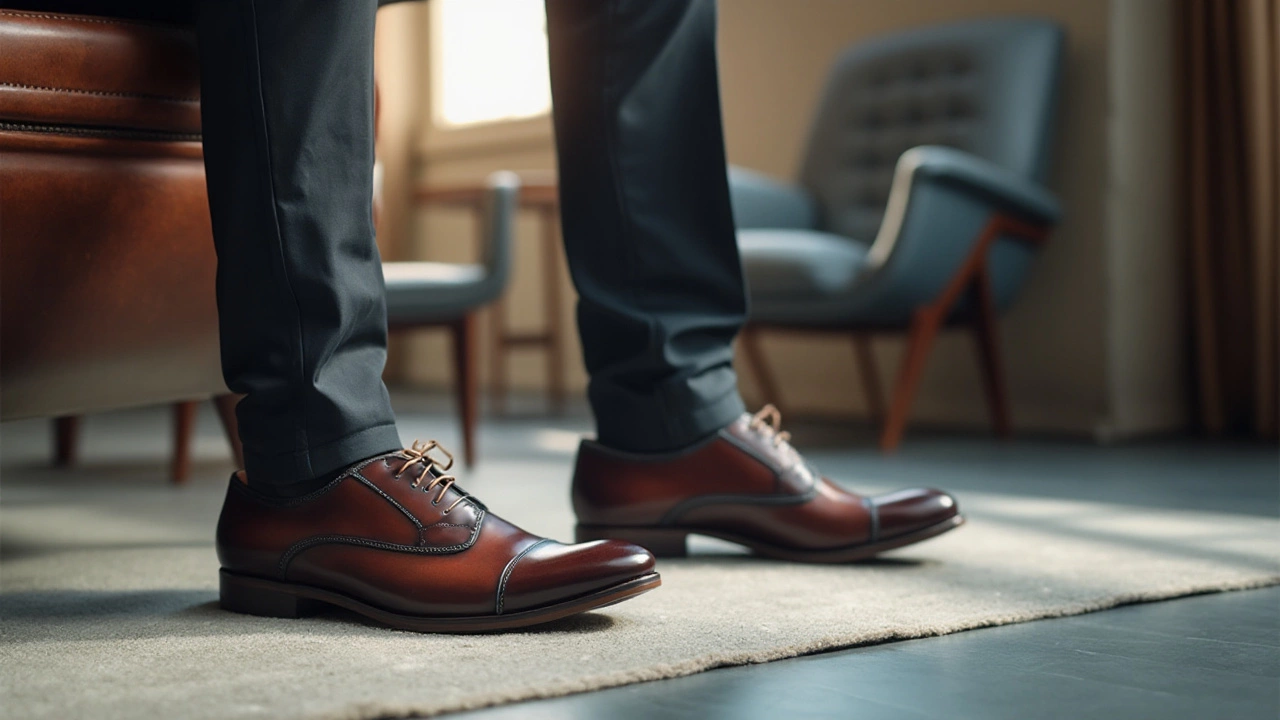Work Shoe Comfort: Tips for All-Day Foot Happiness
If you spend hours on your feet, the right shoes can mean the difference between feeling great and ending the day with sore arches. You don’t need a fancy brand, just the right features that keep you comfortable and safe.
What Makes a Work Shoe Comfortable?
First, look for good arch support. A supportive insole spreads pressure evenly and stops the foot from collapsing. Next, check the cushioning. Soft midsoles absorb shock when you step, which is crucial if you walk on hard floors.
Breathability matters, too. Shoes made from mesh or leather with perforations let air flow, reducing sweat and odor. Finally, a secure fit—nothing too tight or too loose—prevents blisters and keeps the shoe stable.
Key Features to Prioritize
Slip‑resistant soles are a must in kitchens, warehouses, or any slick surface. Look for a tread pattern that grips well without being overly hard.
Lightweight construction helps you move faster and reduces fatigue. Heavy boots feel like a burden after a few hours.
Wide toe box gives your toes room to spread naturally, which cuts down on crowding and bunions.
Many work shoes now include removable insoles, so you can swap in a custom orthotic if you need extra support. That little upgrade can turn an okay shoe into a perfect fit.
When you try shoes on, stand up fully and walk around the store. Feel how the heel lifts—if it slides, the shoe isn’t snug enough. Your weight should be evenly distributed across the foot, not just the ball or the heel.
Don’t ignore the break‑in period. Even the best shoes need a day or two of light wear before you tackle a full shift. Use them at home for short walks to let the materials soften.
For people who stand all day, alternating between supportive shoes and a softer pair (like a slip‑on sneaker) can give your feet a break. Rotate to avoid constant pressure on the same spots.
Maintenance is easy: keep the soles clean, replace worn insoles, and watch for cracks in the uppers. A well‑cared shoe lasts longer and stays comfortable.
Popular choices that hit these marks include brands that specialize in work footwear, such as sturdy leather shoes with cushioned midsoles, or lightweight mesh sneakers with slip‑resistant outsoles. Read reviews for real‑world durability before buying.
In short, focus on arch support, cushioning, breathability, slip resistance, and a secure fit. Test shoes in store, break them in gently, and keep them clean. Follow these steps and you’ll finish every shift with happy feet, ready for the next day.
-
Discover the Most Comfortable Work Shoe Brands
Finding the perfect work shoe is crucial for comfort and mobility during long hours. This article explores various shoe brands known for their superior comfort and support in work settings. Each brand offers unique designs aimed at professionals who prioritize foot health and comfort. With insights, facts, and tips, readers will learn about what makes a shoe comfortable and how to choose the right pair for their needs.
